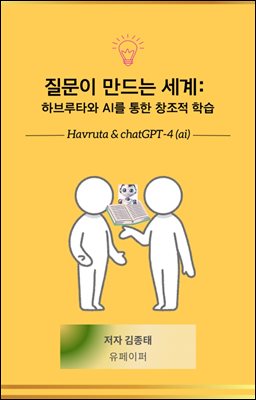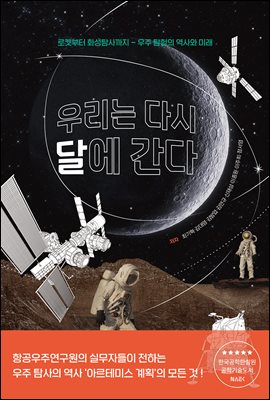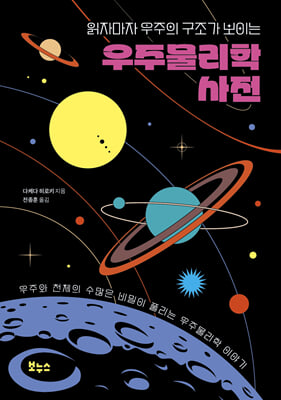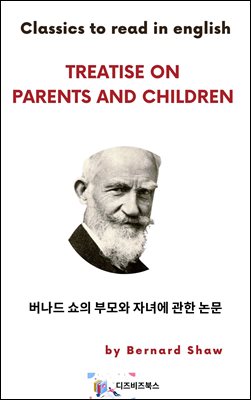
- СњЙЎРЬ ИИЕхДТ ММАш
<АЁЧт БшСОХТ> Рњ | РЏЦфРЬЦл

- ПьИЎДТ ДйНУ ДоПЁ АЃДй
<УжБтЧѕ>,<БшДыПЕ>,<БшЙцПБ>,<Бш... | ПЅОЦРЬЕ№ЙЬЕ№Ою

- РаРкИЖРк ПьСжРЧ БИСЖАЁ КИРЬДТ ПьСжЙАИЎЧа ЛчРќ
<ДйФЩДй ШїЗЮХА> Рњ<РќСОШЦ> ПЊ | КИДЉНК


< ПЕОюЗЮ РаДТ АэРќ _ ЙіГЊЕх МюРЧ КЮИ№ПЭ РкГрПЁ АќЧб ГэЙЎ>
"Treatise on Parents and Children"РК СЖСі ЙіГЊЕх МюАЁ 1910ГтПЁ ЙпЧЅЧб ПЁММРЬРдДЯДй.
РЬ ПЁММРЬДТ МюРЧ ШёАю "Misalliance"РЧ МЙЎРИЗЮ ОВПДСіИИ, Бз РкУМЗЮ ЕЖИГРћРЮ РлЧАРИЗЮ ЦђАЁЙоАэ РжНРДЯДй. МюДТ РЬ БлПЁМ КЮИ№ПЭ РкГр АќАш, БГРА, ЛчШИШ АњСЄ ЕюПЁ ДыЧб РкНХРЧ АпЧиИІ ЛѓММШї ЙрШќДЯДй.
СжПф ГЛПыРИЗЮДТ ДйРНАњ ААРК СжСІЕщРЬ ЦїЧдЕЫДЯДй:
1. КЮИ№ПЭ РкГр АЃРЧ БЧЗТ АќАш КёЦЧ
2. РќХыРћРЮ БГРА НУНКХлПЁ ДыЧб ЙЎСІ СІБт
3. ОЦЕПРЧ БЧИЎПЭ РкРЏПЁ ДыЧб СжРх
4. ЛчШИАЁ ОЦЕПРЛ ДыЧЯДТ ЙцНФПЁ ДыЧб КёЦЧ
5. АЁСЄ БГРААњ АјБГРАРЧ ПЊЧвПЁ ДыЧб АэТћ
МюДТ РЬ ПЁММРЬПЁМ ОЦЕПРЛ ЕЖИГРћРЮ АГУМЗЮ СИСпЧиОп ЧбДйАэ СжРхЧЯИч, КЮИ№РЧ АњЕЕЧб ХыСІПЭ АЃМЗРЛ КёЦЧЧеДЯДй. ЖЧЧб ДчНУРЧ БГРА НУНКХлРЬ ОЦЕПРЧ УЂРЧМКАњ АГМКРЛ ОяОаЧбДйАэ СіРћЧеДЯДй.
ЦЏШї МюДТ ОЦЕПРЧ РкРЏПЭ БЧИЎИІ АСЖЧЯИч, ЛчШИАЁ ОЦЕПРЛ ДмМјШї ЙЬМКМїЧб СИРчЗЮ УыБоЧЯДТ АЭРЛ КёЦЧЧеДЯДй. БзДТ ОЦЕПРЬ РкНХРЧ АцЧшРЛ ХыЧи ЙшПьАэ МКРхЧв Мі РжДТ ШЏАцРЛ СІАјЧиОп ЧбДйАэ СжРхЧеДЯДй.
"Treatise on Parents and Children"РК МюРЧ СјКИРћРЬАэ ЧѕНХРћРЮ ЛчЛѓРЛ Рп КИПЉСжДТ РлЧАРИЗЮ ЦђАЁЙоАэ РжНРДЯДй. БзРЧ ОЦРЬЕ№Ою Сп РЯКЮДТ ДчНУЗЮМДТ ИХПь БоСјРћРЬОњСіИИ, ПРДУГЏРЧ БГРА Йз ОЦЕП ЙпДо РЬЗаАњ ИЦЖєРЛ ААРЬЧЯДТ КЮКаРЬ ИЙНРДЯДй.
РЬ ПЁММРЬДТ БГРАЧа, ОЦЕП НЩИЎЧа, ЛчШИЧа Ею ДйОчЧб КаОпПЁМ ПЉРќШї ПЌБИЕЧАэ РЮПыЕЧАэ РжРИИч, КЮИ№-РкГр АќАшПЭ БГРАПЁ ДыЧб ЧіДыРћ ГэРЧПЁЕЕ ИЙРК ПЕЧтРЛ ЙЬФЁАэ РжНРДЯДй.
РќУМРћРИЗЮ "Treatise on Parents and Children"РК МюРЧ ЛчШИ КёЦђАЁЗЮМРЧ ИщИ№ПЭ БзРЧ СјКИРћ ЛчЛѓРЛ Рп КИПЉСжДТ СпПфЧб ХиНКЦЎЗЮ ЦђАЁЙоАэ РжНРДЯДй.
< Classics in English _ Treatise on Parents and Children by Bernard Shaw >
"Treatise on Parents and Children" is an essay published by George Bernard Shaw in 1910.
This essay was written as the introduction to Shaw's play "Misalliance," but it is considered an independent work in its own right. In this essay, Shaw details his views on parent-child relationships, education, and the process of socialization.
The main topics include the following:
1. Criticism of the power relationship between parents and children
2. Raising questions about the traditional education system
3. Argument for the rights and freedom of children
4. Criticism of the way society treats children
5. Consideration of the roles of home education and public education
In this essay, Shaw argues that children should be respected as independent individuals, and criticizes excessive control and interference by parents. He also points out that the education system at the time suppresses children's creativity and individuality. In particular, the show emphasizes the freedom and rights of children, and criticizes society for treating children as mere immature beings. He argues that children should be provided with an environment where they can learn and grow through their own experiences.
"Treatise on Parents and Children" is considered a work that well displays Shaw's progressive and innovative ideas. Some of his ideas were very radical at the time, but many of them are in line with today's educational and child development theories.
This essay is still studied and cited in various fields such as education, child psychology, and sociology, and has had a great influence on modern discussions about parent-child relationships and education.
Overall, "Treatise on Parents and Children" is considered an important text that well displays Shaw's side as a social critic and his progressive ideas.
Summary
Childhood is a stage in the process of that continual remanufacture of the Life Stuff by which the human race is perpetuated. The Life Force either will not or cannot achieve immortality except in very low organisms: indeed it is by no means ascertained that even the amoeba is immortal. Human beings visibly wear out, though they last longer than their friends the dogs. Turtles, parrots, and elephants are believed to be capable of outliving the memory of the oldest human inhabitant. But the fact that new ones are born conclusively proves that they are not immortal. Do away with death and you do away with the need for birth: in fact if you went on breeding, you would finally have to kill old people to make room for young ones.
Contents
Trailing Clouds of Glory
The Child is Father to the Man
What is a Child?
The Sin of Nadab and Abihu
The Manufacture of Monsters
Small and Large Families
Children as Nuisances
Child Fanciers
Childhood as a State of Sin
School
My Scholastic Acquirements
Schoolmasters of Genius
What We Do Not Teach, and Why
Taboo in Schools
Alleged Novelties in Modern Schools
What is to be Done?
Children's Rights and Duties
Should Children Earn their Living?
Children's Happiness
The Horror of the Perpetual Holiday
University Schoolboyishness
The New Laziness
The Infinite School Task
The Rewards and Risks of Knowledge
English Physical Hardihood and Spiritual Cowardice
The Risks of Ignorance and Weakness
The Common Sense of Toleration
The Sin of Athanasius
The Experiment Experimenting
Why We Loathe Learning and Love Sport
Antichrist
Under the Whip
Technical Instruction
Docility and Dependence
The Abuse of Docility
The Schoolboy and the Homeboy
The Comings of Age of Children
The Conflict of Wills
The Demagogue's Opportunity
Our Quarrelsomeness
We Must Reform Society before we can Reform Ourselves
The Pursuit of Manners
Not too much Wind on the Heath, Brother
Wanted: a Child's Magna Charta
The Pursuit of Learning
Children and Game: a Proposal
The Parents' Intolerable Burden
Mobilization
Children's Rights and Parents' Wrongs
How Little We Know About Our Parents
Our Abandoned Mothers
Family Affection
The Fate of the Family
Family Mourning
Art Teaching
The Impossibility of Secular Education
Natural Selection as a Religion
Moral Instruction Leagues
The Bible
Artist Idolatry
"The Machine"
The Provocation to Anarchism
Imagination
Government by Bullies
































